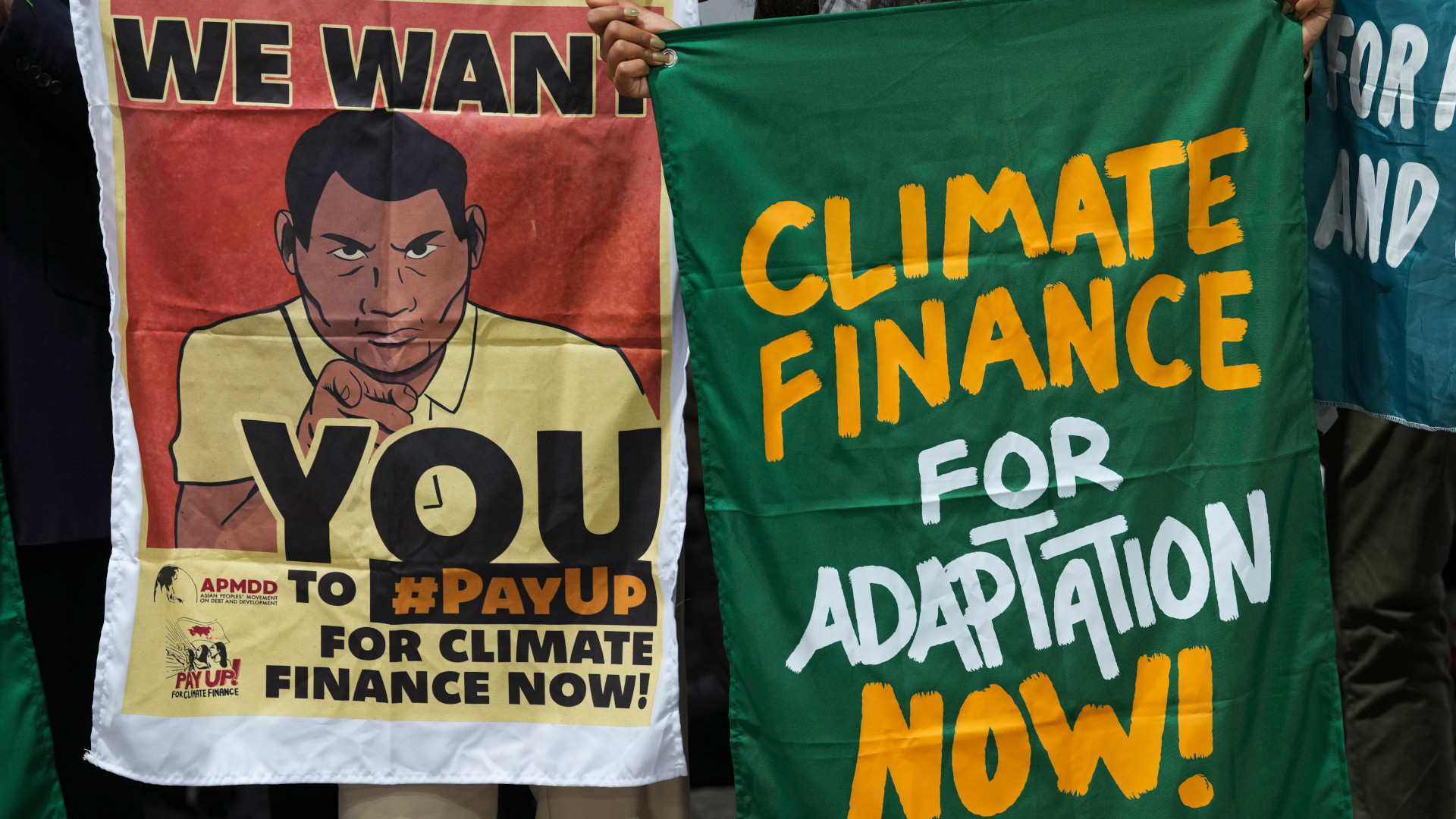
In an important step toward updating financial regulation to maintain relevance in the era of climate change, Ontario’s Ministry of Finance is reviewing the need for new policy on the disclosure of climate-related financial risks and opportunities by corporations regulated by the Ontario Securities Commission (OSC).
The review comes in response to a formal request from Greenpeace Canada, made under section 61(2) of Ontario’s Environmental Bill of Rights. This mechanism enables citizens or organizations to “call the question” regarding the need for a new policy or regulation. The legislation doesn’t require the government to undertake a review, but if it chooses not to, then the responsible ministry must explain why not. In the application we argued that the lack of mandatory disclosure of climate-related risks is a gap in Ontario’s plan to adapt to a low-carbon economy and that new requirements should be included in the provincial climate change adaptation strategy (currently under development).
Concern over climate-related financial risks is being expressed by investors, regulators, governments and environmental groups. A key question is whether disclosures regarding these risks should be made mandatory and comparable with other disclosure requirements, by being integrated into financial regulations, or whether they should be left as voluntary measures.
Climate change as a threat to the global financial system
Climate-related financial risk is on the global policy agenda as an unintended consequence of the 2008 market meltdown, which was triggered by newly deregulated banks investing in subprime mortgages while regulators ignored the longer-term systemic risks. In the aftermath of that crisis, the G20 established the Financial Stability Board (FSB) to coordinate the reform of global financial regulation and to scan the horizon to identify comparable threats to the stability of the global financial system. The Governor of the Bank of England, Mark Carney, was appointed chair of the FSB, and in September 2015 he gave a speech at Lloyds of London where he identified the next big threat: climate change.
Carney appointed Michael Bloomberg to chair the FSB’s Task Force on Climate-related Financial Disclosures. It was asked to propose “voluntary, consistent climate-related financial risk disclosures for use by companies in providing information to investors, lenders, insurers, and other stakeholders,” taking into account “the physical, liability and transition risks associated with climate change and what constitutes effective financial disclosures across industries.”
The task force released its final report in June 2017, stating that the disclosure of climate-related risks and opportunities is a key mechanism for facilitating the transition to a low-carbon economy and for protecting society as a whole from climate-related financial shocks. It also laid out detailed recommendations on how organizations should disclose those risks with respect to their corporate governance, structure, risk management, and metrics and targets. As part of this process, companies would evaluate the resiliency of their business plans in a scenario where warming is kept below 2°C (in line with the Paris Agreement) and identify the adjustments required to thrive in a low-carbon world.
Responses to the task force report in Canada
Immediately upon publication, the FSB task force report’s recommendations were supported by more than 100 firms from around the globe with market capitalizations of over $3.3 trillion and financial firms responsible for assets of more than $24 trillion. This list included the Canada Pension Plan Investment Board, the Ontario Teachers’ Pension Plan, OPTrust (the pension plan for public sector workers in Ontario), the Caisse de dépôt et placement du Québec, the British Columbia Investment Management Corporation and Barrick Gold. Another 24 firms on the list, while not headquartered in Canada, have significant operations here.
In addition, two Canadian banks (Toronto Dominion and the Royal Bank) are part of a United Nations Environment Programme pilot project that is exploring how to implement the task force’s recommendations by developing analytical tools and indicators to strengthen their assessment and disclosure of climate-related risks and opportunities.
In a parallel move, the Chartered Professional Accountants of Canada prepared a report in 2017 examining the nature and extent of climate-related disclosures made by Canadian public companies in their securities filings. It found that while there is broad disclosure of climate-related information among Canadian companies, these disclosures did not provide sufficient context for users, they were not comparable across or within industries, there was inconsistent terminology, and less than one-quarter of companies disclosed proactive strategies to deal with the transition to a low-carbon economy.
Perhaps most significantly, the Canadian Securities Administrators (CSA), in cooperation with provincial regulators such as the OSC, launched its own review of disclosure requirements following the release of the draft recommendations of the FSB task force in December 2016. The CSA review has been researching what is happening in other jurisdictions, reviewing climate-related disclosures in the 2016 annual reports of companies listed on the Toronto Stock Exchange and consulting with stakeholders. According to an October 2017 presentation by the OSC’s Jo-Anne Matear, the CSA review is contemplating four options:
- maintaining the status quo;
- publishing refreshed guidance (clarifying the existing rules on climate-related disclosure);
- an increased focus on climate change matters in disclosure compliance reviews; or
- implementation of new disclosure requirements.
Greenpeace Canada made a submission to the CSA review in favour of new disclosure requirements. But we also approached the Ontario government directly (in our request for policy review under the Environmental Bill of Rights), for two reasons.
First, securities regulation on the Toronto Stock Exchange (the most important stock exchange in Canada) is ultimately governed by the Ontario Securities Act, which is provincial legislation. The Ontario Securities Commission administers much of the Act as an arm’s-length regulator, but the provincial government sets the broad direction for the commission’s work.
Second, this is an instance where narrow sectoral regulation (in this case, the OSC’s requirements for corporate filings) needs to be revised in the context of a broader societal objective (speeding and smoothing the transition to a low-carbon economy). Reconciling the two is properly the role of government.
Voluntary versus mandatory disclosure
The FSB task force had a mandate only to recommend voluntary measures, yet its final report concluded with a thinly disguised call for mandatory requirements to be adopted by governments:
In the Task Force’s view, the success of its recommendations depends on near-term, widespread adoption by organizations in the financial and non-financial sectors…Widespread adoption of the recommendations will require ongoing leadership by the G20 and its member countries. Such leadership is essential to continue to make the link between these recommendations and the achievements of global climate objectives.
Greenpeace argues that a voluntary approach to the disclosure of climate-related risks will be insufficient, for these reasons:
- the lack of comparability between the information provided by companies (such as nonstandard metrics, incomplete information or nondisclosure of negative performance, as identified in the review by the Chartered Professional Accountants of Canada);
- perverse incentive structures, whereby companies that disclose risks are punished relative to companies that say nothing or don’t disclose all risks;
- conflicts of interest, as some firms (such as fossil fuel producers) will have a strong self-interest in downplaying risks;
- a lack of enforcement inherent in voluntary regimes (for example, inadequate sanctions, under-enforcement or insufficient resources); and
- a failure to challenge corporate culture (as when reporting on climate-related risk is managed by the corporate social responsibility office, instead of being treated as something the board and senior management have to debate and approve).
Mandatory disclosure of climate-related risks and opportunities in a consistent, comparable format — in the same way companies have to follow accounting rules to explain their balance sheets — would enable investors to make better decisions.
To provide a longer-term perspective that integrates corporate plans with the goals of the Paris Agreement, disclosure rules should include a requirement for companies to assess the resilience of their business plans in a scenario where the increase in warming is kept well below 2°C. And this disclosure should be enforceable, with penalties for inadequate disclosure comparable to those for misrepresenting financial information.
Putting a price on carbon, as many governments in Canada have done, is an important first step toward addressing the market’s climate change blind spot. Now it is time to take the next step by updating financial market regulation for the new realities of a low-carbon world.
Photo: Shutterstock, by Paraksa.
Do you have something to say about the article you just read? Be part of the Policy Options discussion, and send in your own submission. Here is a link on how to do it. | Souhaitez-vous réagir à cet article ? Joignez-vous aux débats d’Options politiques et soumettez-nous votre texte en suivant ces directives.







